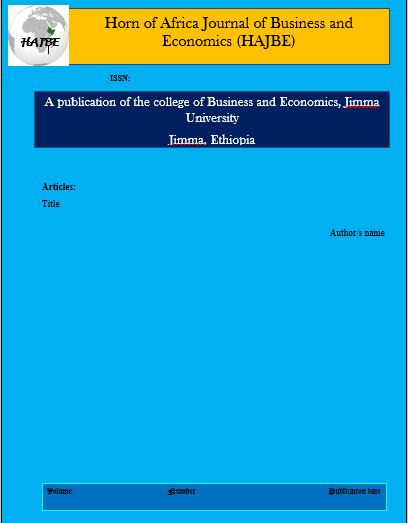Factors Affecting Credit Risk Exposure of Commercial Banks in Ethiopia An Empirical Analysis Kefyalew Tadesse Sendo
Main Article Content
Abstract
This study was designed to empirically investigate factors affecting credit risk exposure of
selected commercial banks in Ethiopia. A panel of nine commercial banks each having 11 years
of observations was included. The banks were selected on the basis of number of annual
financial report (2005-2015) to come up with sufficient number of observations. Alternative
econometric estimation models such as fixed effect, random effect, Feasible Generalized Least
Square, Ordinary Least Square and xtscc were used to indicate whether the results are robust
and are convergent irrespective of diagnostic test procedures. The result indicates that total
equity to total assets, proxy of capital negatively and significantly affect credit risk under the five
alternative models in four of the five models at α=1% level of significance. Cash reserve ratio,
proxy of banking regulation positively and significantly affect credit risk at α=1% in the three of
the five estimation models (fixed effect, random effect and Ordinary Least Square). Moreover,
Loan to Deposit ratio, proxy of lending structure positively and significantly affect credit risk
under all the five models at α=5% or α=1% level of significance. Liquidity has positive and
significant effect on credit risk under the four of the five alternative mode at α=1%. It has also
been found out that government owned commercial bank has significantly higher credit risk
exposure than privately owned banks. Finally, both economic growth rate and bank specific
financial performances have no significant effect on credit risk. The author suggests that banks
need to reduce the level of their debt; keep their liquidity at optimal level, reduce cash reserve
ratio only to the level legally required to reduce their risk exposure.

